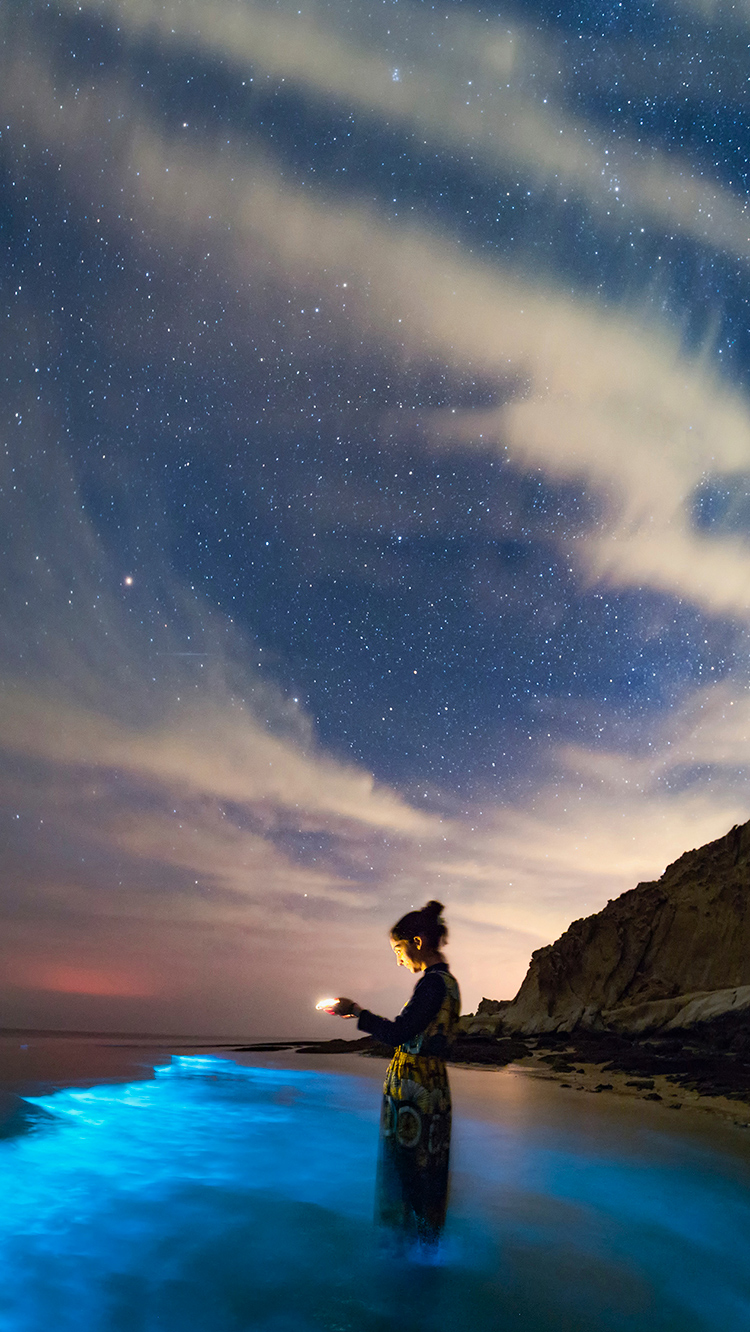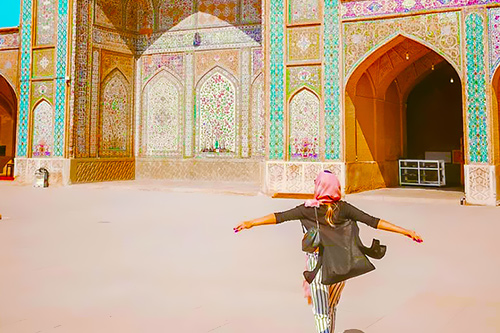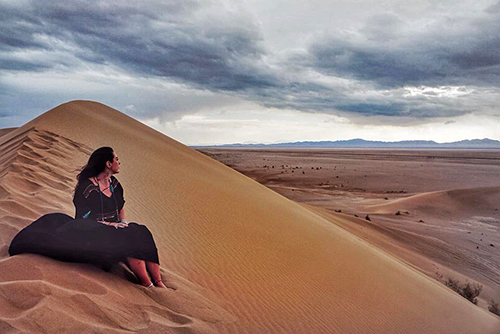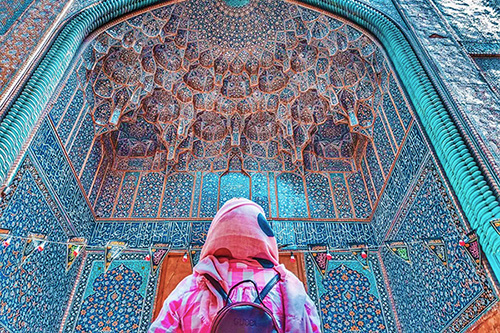 Signin with Google
Signin with Google Signin with Facebook
Signin with Facebook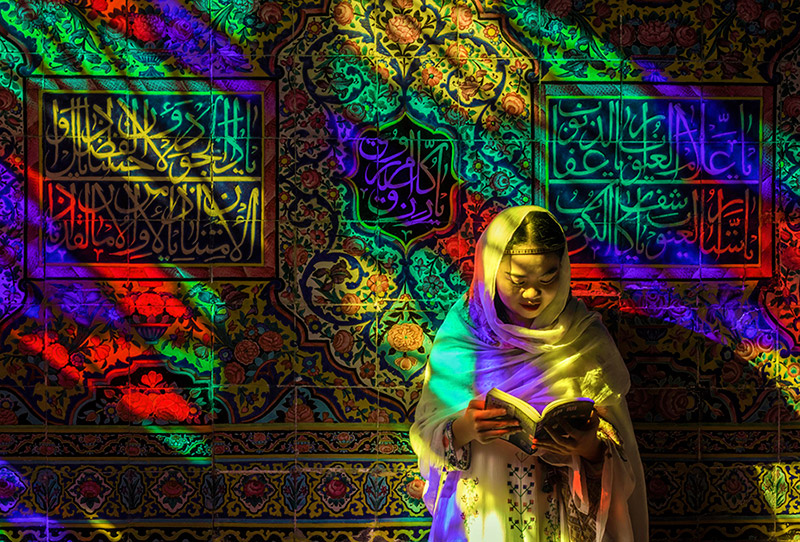 About Iran
About IranTop Locations for Night Sky Photography in Iran
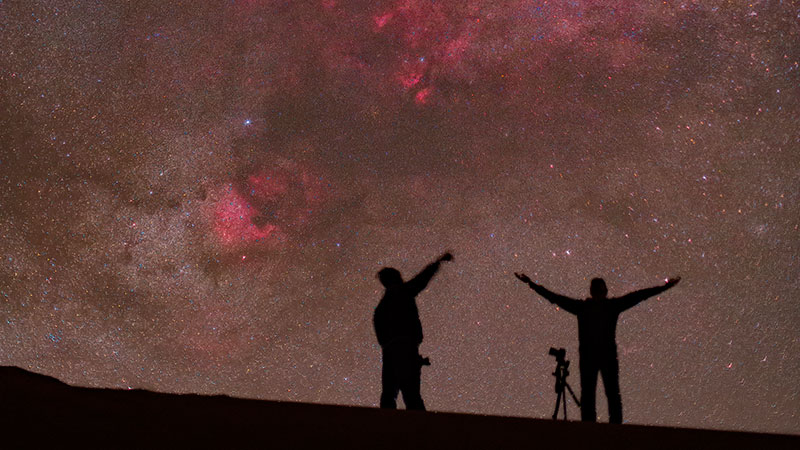
When the light of the sun slowly fades away and the star blanket of night covers the sky, the solitude of the nighttime all along the Milky Way makes you the commander of dreams. Though modernity waned the simple ecstasy of observing the stars, the mysteries of the night sky and the myths of its celestial bodies still stun people. For those who love to drown in and photograph the endless glory of the night sky, Iran is an ideal unknown place.
Iran's sky has low levels of Light Pollution
To have a perfect view of celestial features, a clean and dark sky is essential. In today's industrial world, pollution is an inseparable part of our lives and seeing the beauty of twinkling stars is so hard.
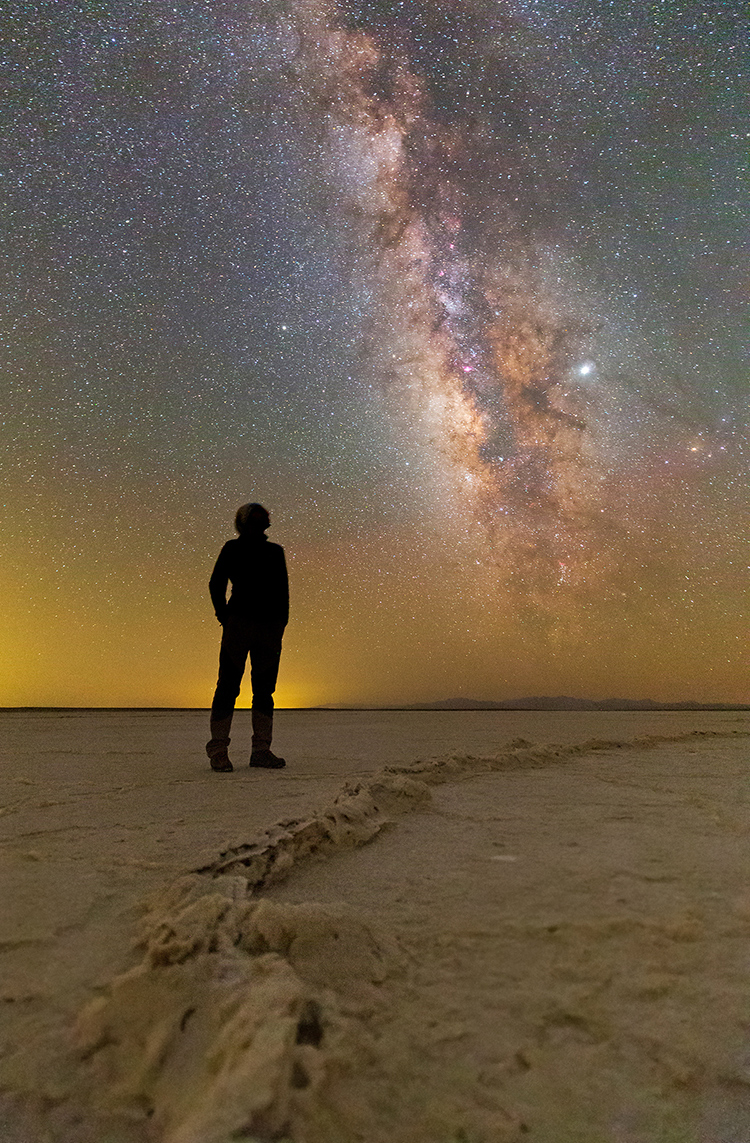
Light pollution is the result of our excessive and poor use of artificial lights. Disturbing the balance of the natural light level is the main obscure of our connection to the attractions of stars. According to light pollution maps, a considerable portion of Iran, enjoy clean and dark skies.
Milky Way, the wonder of Iran’s summer sky
I have to say that I have never seen darker skies in my life than here in Iran, the MilkyWay was literally 3D popping out in the sky!
Benjamin Barakat, Milkyway Photographer of the year 21/22
Milky Way is observable during summer in the Iranian Plateau. The summer sky of Iran also hosts one of the most popular meteor showers, the Perseid meteor shower which occurs from July 17 to August 24 and tends to peak around August 12. In winter Orion Nebula, winter Constellations and a couple of meteor showers such as the Geminids meteor shower can be observed in Iran’s night sky.
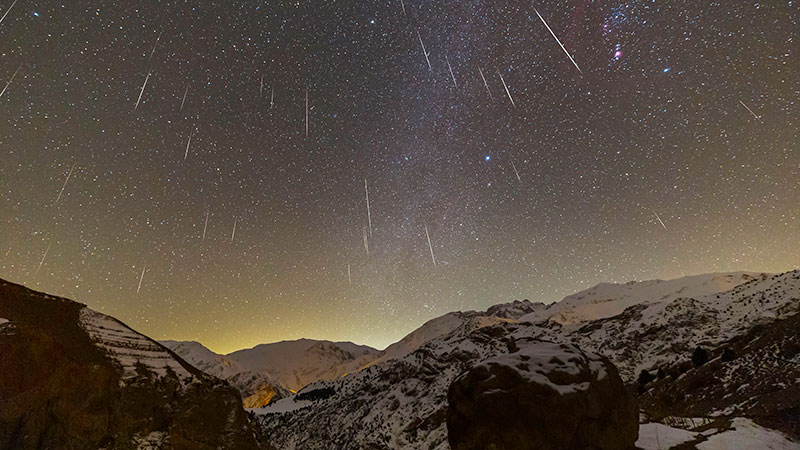
Dream places of Iran for night sky photographers
The desert sky and magical natural views are the clean ones in Iran that fascinate many travellers, astronomers, and night photographers. Just imagine the splendid picture of a glowing sky as the background of beautiful natural landscapes or magnifying the attractions of historic structures. Here is a list of the best spots for capturing distinct night sky photos in Iran.
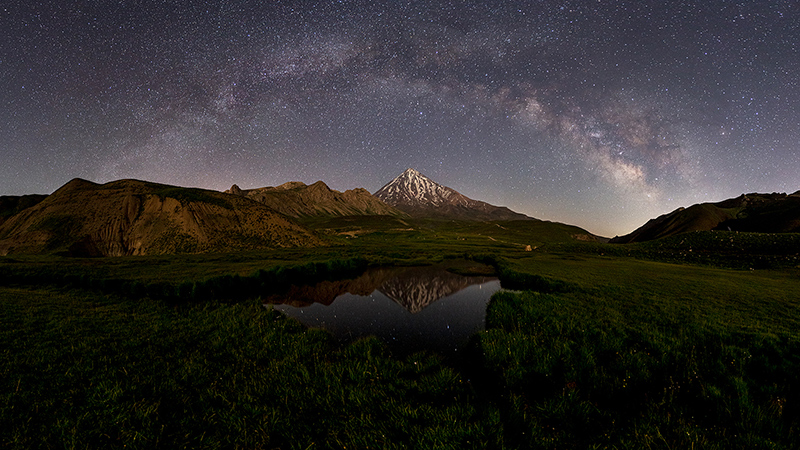
Iran Deserts, vastness and darkness of the night sky
While Iran is mostly known for its ample ancient monuments, its unique geography is another trump card. The magical night sky of Iran's deserts is a truly unique experience. The feeling of a pleasant breeze while lying on the sandy bed of desert and gazing at the sparkling veiling of the sky over you is breathtaking. The central parts of Iran are covered with magnificent deserts and barren lands, perfect locations for observing and photographing celestial objects.
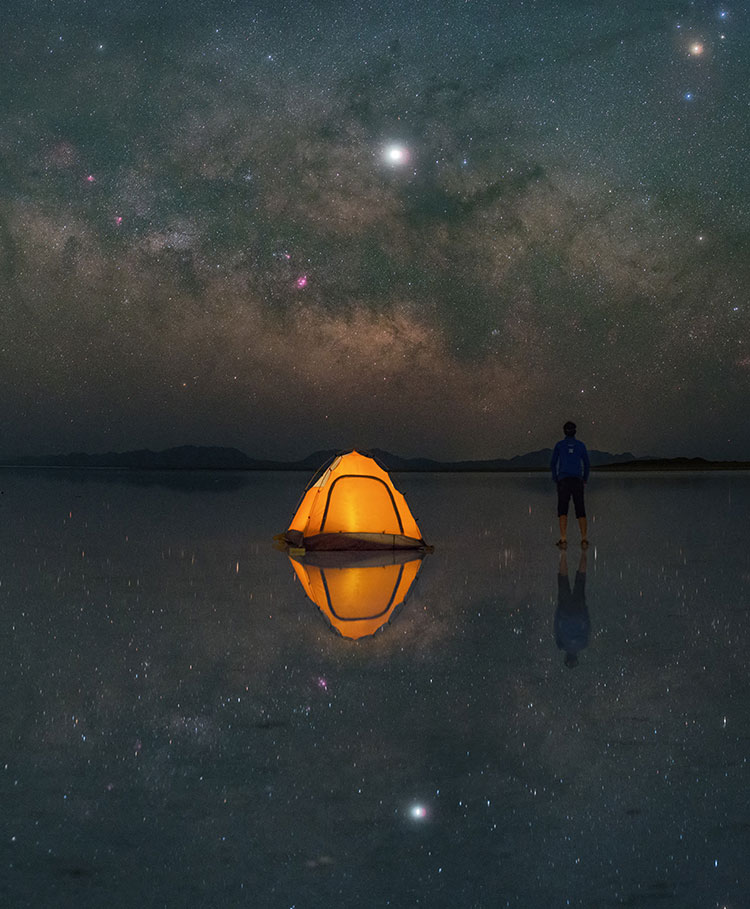
Lut, where everything has resonance
Camping under the stars in a UNESCO World Heritage Site is an unexampled lifetime experience. Covering about 10 per cent of Iran's plateau, Lut is the second-largest desert in Iran. What makes Lut an unforgettable location for photographers is the Kalout area near Shahdad's ancient city. Situated in the southeastern parts of Kerman, Kaluts are extremely tall clod sculptures made by soil and water erosions. From the very first moment after the sunset that the sidereal stars appear in the Luts sky to the rise of the Milky Way over Kaluts you cannot take your eyes off this magical arena.
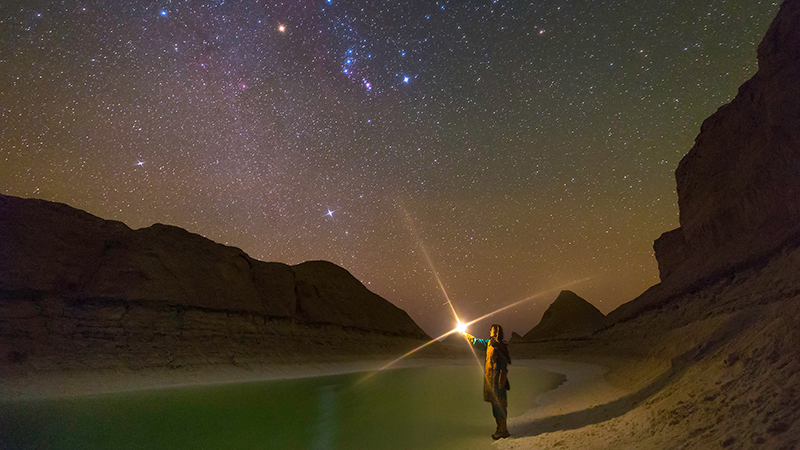
Maranjab Desert, spectacular scenery of night glow
50 kilometres away from Kashan, the Maranjab desert is located. Maranjab’s Salt Lake is a highlight spot to capture amazing photos. If you are lucky to see the lake filled with rainwater, the panoramic view of the glittering cosmos and their reflections in the lake makes a perfect shot. Besides that, what makes Maranjab more special as an attractive location for trekking through the stars is the historical castle and caravanserai. The splendid view of the sundown and the blooming stars over these old structures make it an amazing place for photography.
Mesr Desert and its fine starlight nights
Getting the name of a nearby uninhabited village, Mesr is a unique spot in the middle of Iran. Located in the Isfahan province, it is famous for its awe-inspiring scenery and fun activities like camel riding, quads, and sand surfing among tourists. Mesr is covered with golden quicksand and dunes, so it is named the "ocean of gold". Another attraction of Mesr Desert is Garmeh. Shinning like an emerald, Garmeh is a rare desert oasis where a warm spring is surrounded by a cluster of palms. For these wonderful natural assets, Mesr is a favoured location for star watchers.
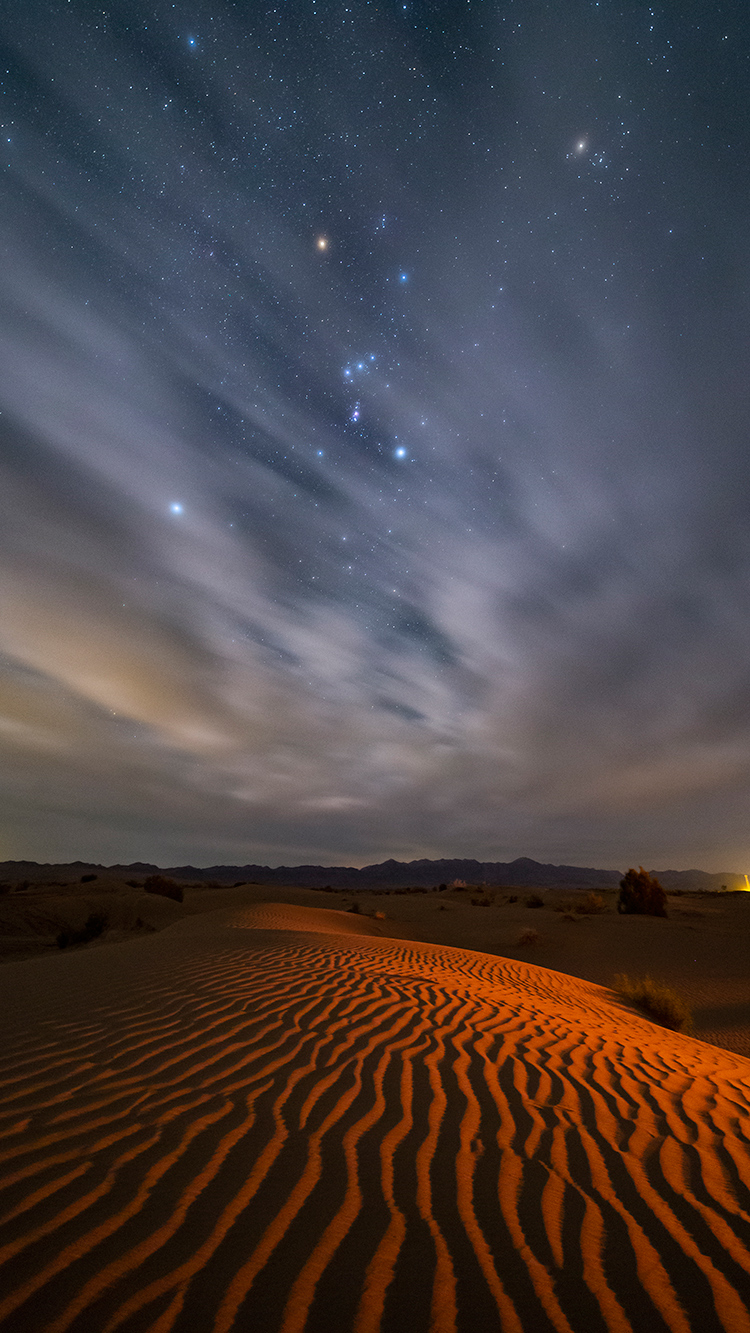
Tabas, the bride of Iran deserts
Situated on the borders of Yazd Province and South Khorasan Province, Tabas is the largest city in Iran. Known as "the bride of deserts" this city is surrounded by striking natural beauties. Picturesque canyons, astonishing oasis, and wide green rice paddy fields besides citrus gardens in the middle of barren land make an exquisite set for taking amazing pictures, especially of the glittering sky at night.
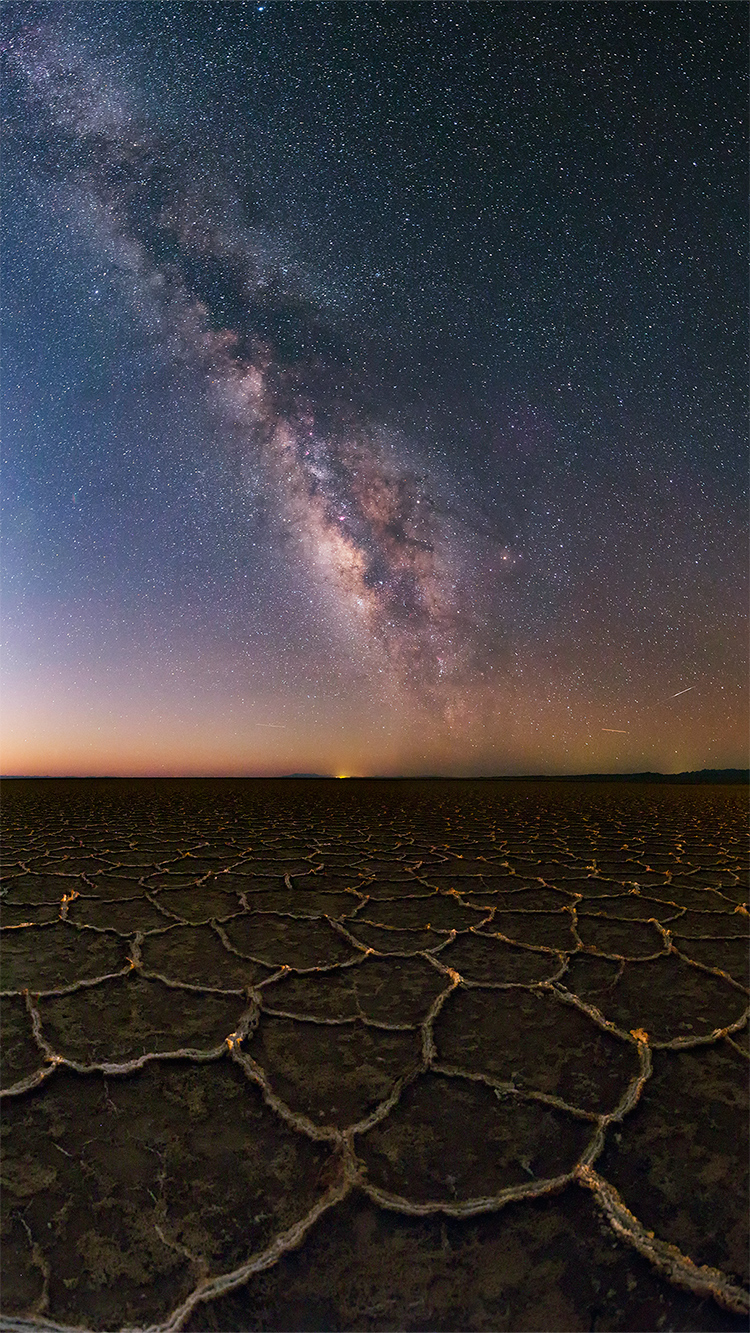
Esfahak Village in Tabas Country is a jewel with top tourism services, a dark night sky and magnificent adobe architecture that is great for stargazing and photography.
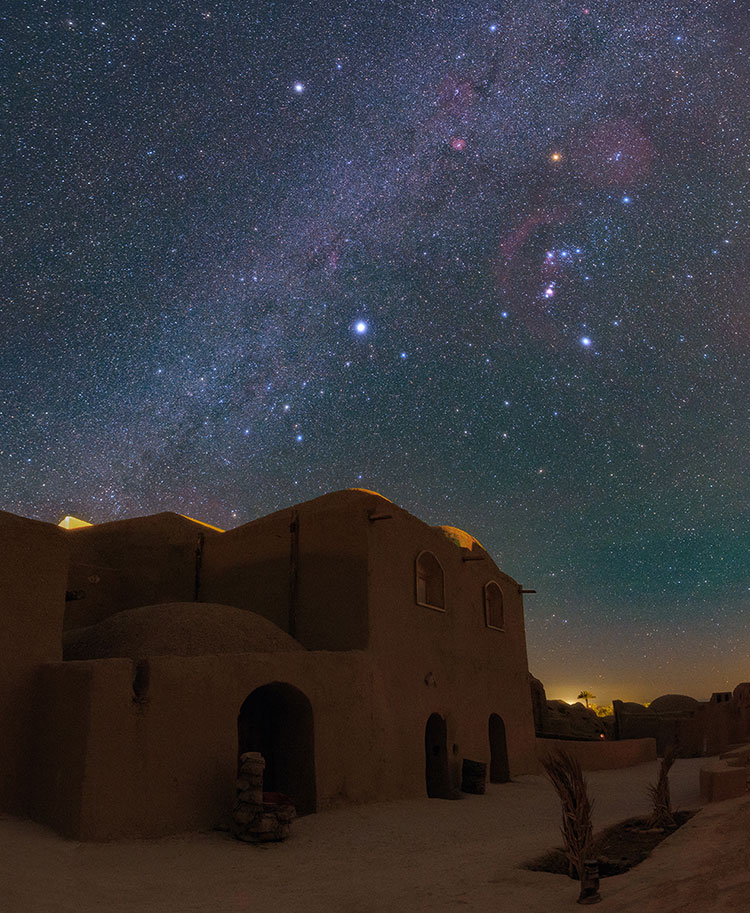
Matin Abad Desert Eco-camp
Matin Abad is an equipped eco-camp in the desert lands near Kashan. By staying there it is a big chance to enjoy nature. Exploring the organic farms, riding on the back of camels, getting relaxed by stepping on the soft sparkling sands of the desert, and observing millions of stars at night. Matin Abad has a good quality of services and accommodation but, its night sky has a little light pollution that must be considered by night sky photographers and stargazers.
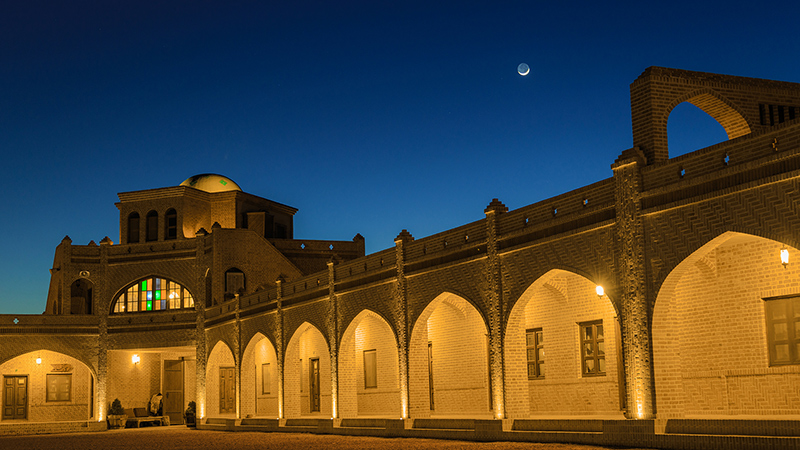
Heights of Iran, an ideal nightscape locations
Iran’s Heights benefit from a clear and transparent sky at night compared to deserts. It is because warmth and dust in the desert that result in noise and bring down the quality of photos. Dust causes spreading light pollution even if the level of pollution is low. The Alborz Mountains heights have some levels of light pollution but instead, there is no dust.
Iran’s heights are exceptional for night photography intention, especially because of dry and good weather on the southern slopes of the Alborz Mountains. Ascending to the heights decreases the density of the atmosphere and betters seeing after getting upper than 2000 metres.
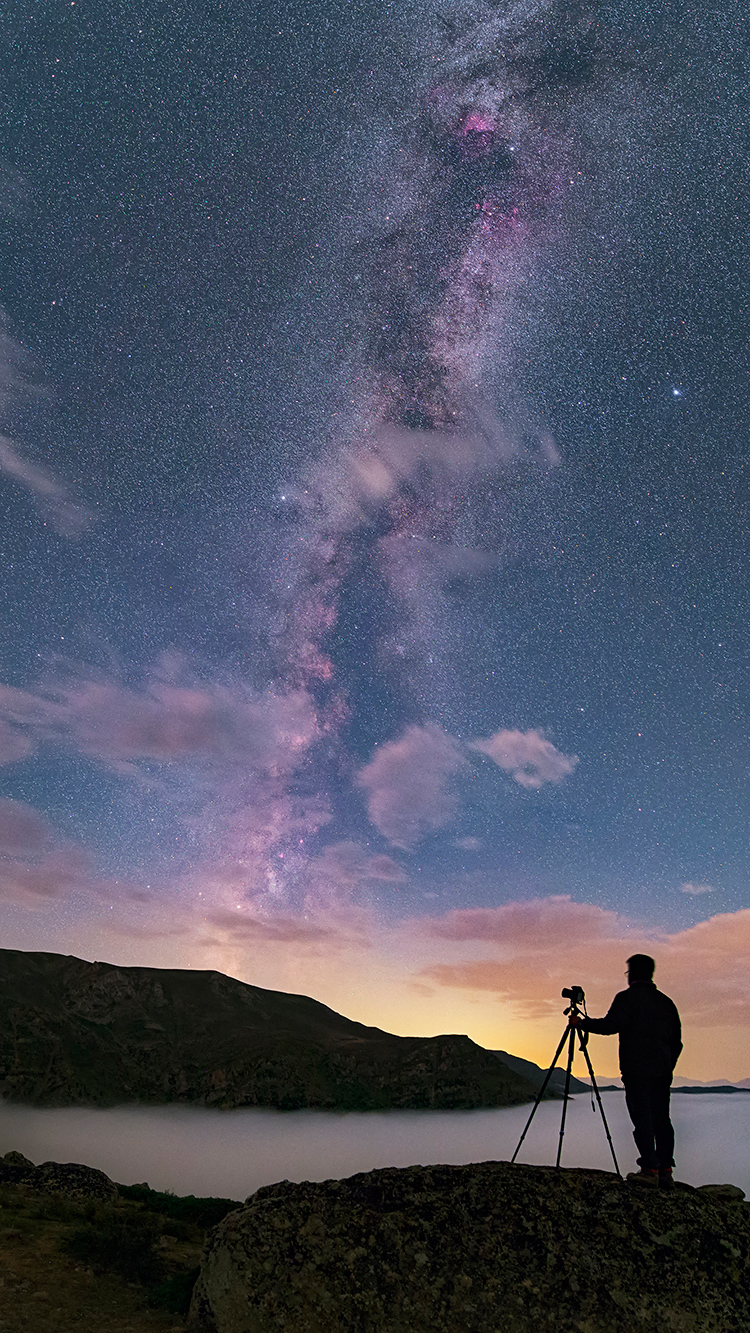
Perfect Iran’s Heights for capturing the night sky
The examples of the best locations for night sky photography in Alborz are Haraz, Firuzkuh, Chalous, Piche Bon road, Kamankuh Lake, and Dorfak summit and all those heights stand in the southern face of Alborz because of low levels of humidity. Yet, night photography is considerably hard and challenging in winter time and this rewarding experience invites those who are physically and professionally prepared for a mountainous path to climb and enjoy it.
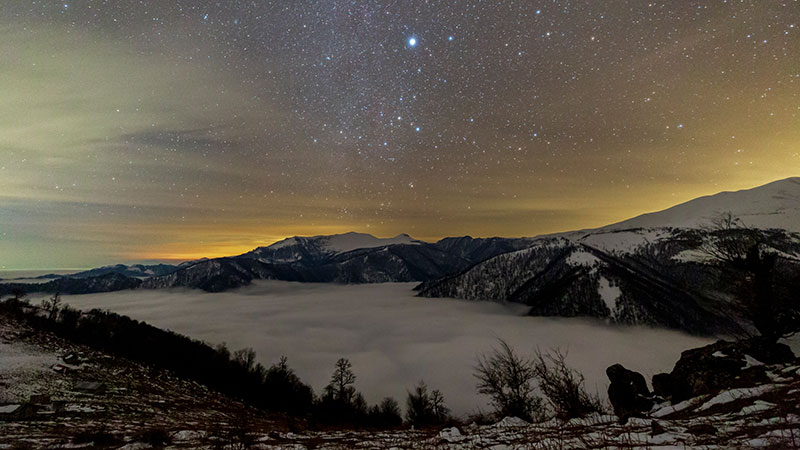
Damavand, Iran’s rooftop and nightscape
Shooting the night sky at the highest mountain peak in the Middle East, Damavand is a different experience in comparison to the deserts. Be ready for a light hike on the slopes of this stratovolcano and manage your time to be there before the twilight. The view of the flaming stars over your head in the silence of the location never fails to allure you. There is another opportunity to capture a star-full sky in the background of Damavand Mountain and full of flower fields of Lar National Park at the mountain foothills.
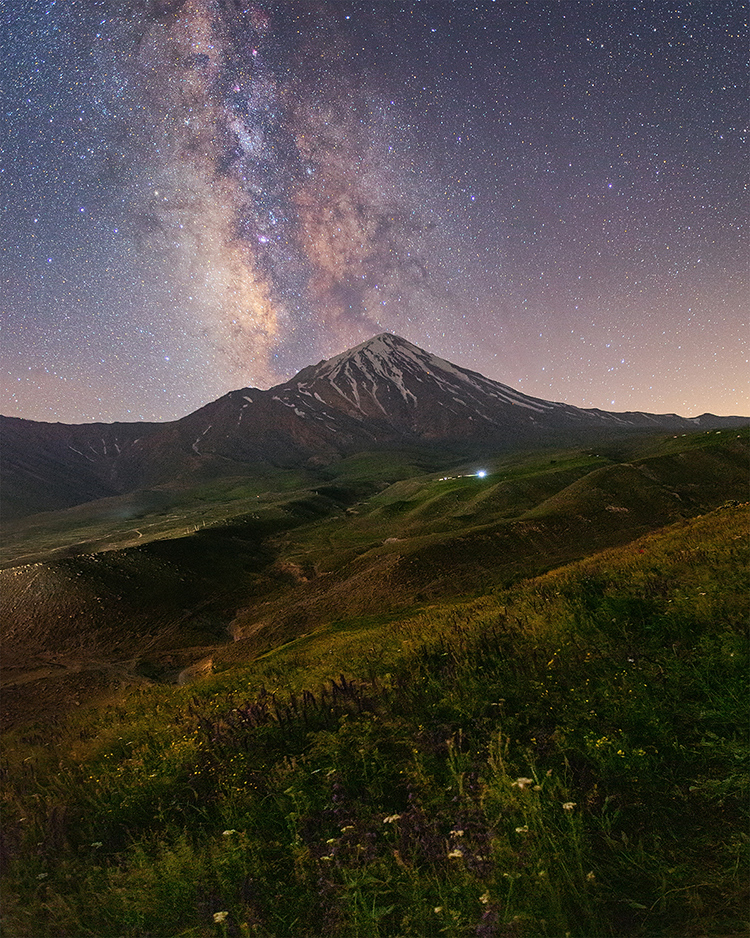
The ancient caravanserais
Zein o-Din Carvanserai
Once on the Silk Road, the ancient transit road, Zein-o-Din Caravanserai was built 400 years ago. At nights the ambience is wonderful as the shiny stones of stars embellish the dark sky spread over the rooftop of Zein-o-Din Caravanserai. This old inn is the favourite place for night photographers and sky fanatics with a slightly light-polluted sky.
Qasr-e Bahram Caravanserai
This remote caravanserai locates in Semnan Province remains from the Sassanid era and was inscribed in the Iranian National Heritage List. Although getting to it is a little bit hard and tourism services are poor but many native night sky photographers captured its marvellous night sky.

Qal-e Khargooshi Caravanserai
This caravanserai locates near Varzaneh desert city and is close to many wonderful natural attractions like a salt lake, wetland and volcanic mountains and Varzaneh Desert. The Stone structured building of Qal-e Khargooshi Caravanserai or rabbit castle once was one of the remarkable Safavid caravanserais in Iran. Its remote location makes it a great place for stargazing and Photographers are able to capture the star-filled sky above this historic castle in the middle of the desert landscape.

Shooting History and Stars
Pasargadae holds a thousand years of starry nights overhead
Once was the central royal palace of the Achemanids, Pasargadae is not just a UNESCO World Heritage Site and touristic attraction in daylight. When the sky wears its glittering nightgown, Pasargadae finds the glamorous spirit of its past times again. If you are interested in the starry sky along with the historical sites, this ancient city near Shiraz brings this magnificent opportunity to fulfil your wish and take awe-stunning shots.
(Overnight and staying in the sites requires getting permits from related organizations)
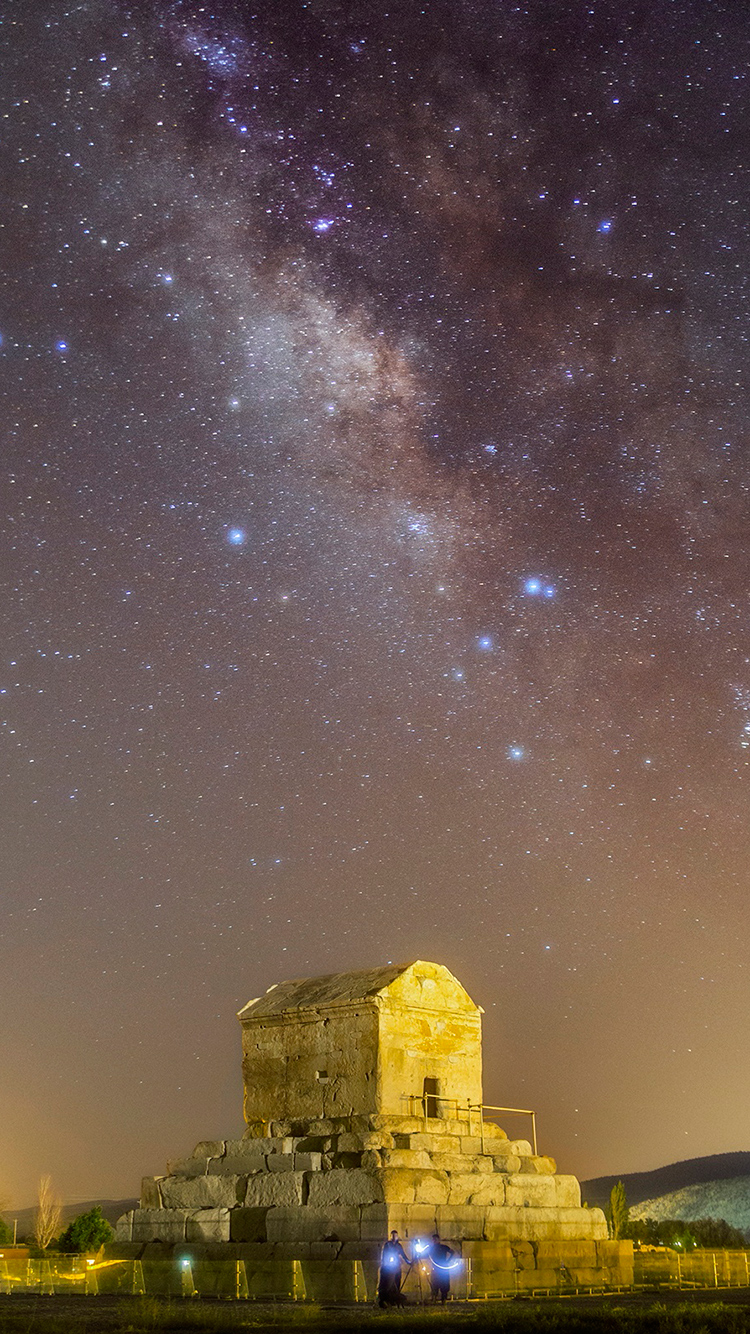
Teymareh rock art site in central Iran
Teymareh petroglyph site is located on the border of Golpayegan and Khomein countries and is known for holding the oldest surviving art-rock in Iran. Removed from the light pollution, it is still within driving distance of major cities with a good quality of tourist services and local guides nearby. This unique location with large panels of numerous ancient paintings provides an ideal chance to capture the night sky and Milky Way illuminating mysterious petroglyphs.

Natural sites for touching the night sky
Badab Soort, terraced springs to frame the sky
One of the few stepped travertine terrace formations of the world is located in the north of Iran. This rare beauty of nature is a stairway of several springs and ponds different in terms of colour, taste, and smell. The reflection of the sun's rays on each of these ponds makes a stunning pallet of bright colours. The real magical scene completes as the night comes and the shimmering stars show their face in these terraces full of water. You will never regret it if you choose this place for night sky photography.

Churat Lake mirrors the night sky
Churet or Miansheh Lake is a Valley lake surrounded by green forests locates in Mazandaran Province. An earthquake caused blocking the path of a spring brought about Churet Lake. This mysterious lake locates in the split of a high slope valley and creates an incredible natural foreground for night sky photographers.

Glowing nights over the Iranian southern beaches
Want to put all space in one frame? Then the southern shores of the Persian Gulf and the Oman Sea offer an offbeat experience. Bioluminescence is a breathtaking phenomenon that happens after nightfall when the planktons glow and light up the shores with blue light. Hormuzgan coasts and Chabahar beaches bear this spectacular phenomenon in the wintertime. Capturing the "Aurora of the Sea" with the sky veiling over can be a dream on the want list of night sky photographers.
